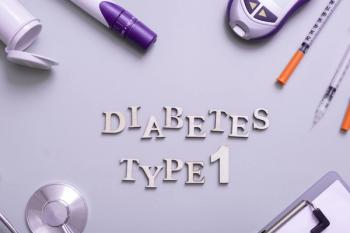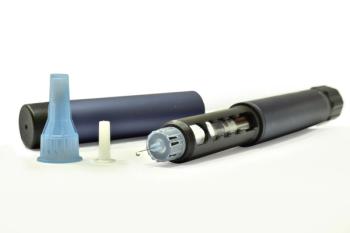
- Drug Topics October 2023
- Volume 167
- Issue 09
JAK Inhibitors May Increase Risk of Shingles in Patients With Immune-Mediated Inflammatory Diseases
Patients with rheumatoid arthritis had a higher risk of shingles when treated once a day with 4 mg of baricitinib, 100 mg of peficitinib, or 30 mg of upadacitinib.
Patients with immune-mediated inflammatory diseases who are being treated with Janus kinase (JAK) inhibitors may be at an increased risk of herpes zoster infection, according to results of a study published in Frontiers in Pharmacology.1 Herpes zoster, more commonly known as shingles, has an incidence rate of between 3 to 5 per 1000 individuals per year and is expected to increase as the global population ages.2 The infection causes a painful rash, and individuals with immune-mediated inflammatory diseases are known to be at higher risk.
JAK inhibitors have so far demonstrated efficacy in managing immune-mediated inflammatory diseases. However, JAK inhibitors have been associated with a higher risk of severe infections, including herpes zoster. Previous research has shown that some JAK inhibitors carry more of a risk for herpes zoster, but these findings have been inconsistent, according to the study authors.1
“The mechanism underlying the association between JAK inhibitor therapy and increased risk of herpes zoster infection is not entirely clear,” the authors wrote.1 “Inhibition of JAK signaling may impair the immune system’s ability to produce antiviral cytokines such as interferons and tumor necrosis factor α, which may be a contributing factor to the increased risk of viral infections and reactivation of latent viral infections such as herpes zoster.”
Investigators conducted a meta-analysis to evaluate the risk of herpes zoster associated with JAK inhibitors in patients with immune-mediated inflammatory diseases. Data was gathered from PubMed, Embase, Web of Science, and Cochrane Library databases.1
The study included data from 47 randomized controlled trials that included 24,142 patients with immune-mediated inflammatory diseases, including inflammatory bowel disease, rheumatoid arthritis, spondyloarthritis, psoriasis, and psoriatic arthritis. The primary study outcome was the incidence of herpes zoster infection.1
Investigators found that 100 mg once a day of the JAK inhibitor peficitinib (Smyraf) was associated with the highest risk of herpes zoster infection. This was followed by 4 mg once a day of baricitinib (Olumiant) and 30 mg once a day of upadacitinib (Rinvoq). There was no difference observed for other JAK inhibitors when compared with placebo.1 Additionally, patients with rheumatoid arthritis had a higher risk of herpes zoster infection when treated once a day with 4 mg of baricitinib, 100 mg of peficitinib, and 30 mg of upadacitinib, respectively.1
Study limitations include the limited number of included studies, inclusion of only English-language studies, varied duration of included studies and that dosage variations of JAK inhibitors could have influenced results.1
“Our study found that different JAK inhibitors may be associated with different risks of herpes zoster infection in patients with rheumatoid arthritis,” the authors concluded. “However, in patients with immune-mediated inflammatory diseases other than rheumatoid arthritis, our study found no significant differences in the risk of herpes zoster infection among the different JAK inhibitors.”1
References
1. Xu Q, He L, Yin Y. Risk of herpes zoster associated with JAK inhibitors in immune-mediated inflammatory diseases: a systematic review and network meta-analysis. Front Pharmacol. 14:1241954. doi:10.3389/ fphar.2023.1241954
2. Kawai K, Gebremeskel BG, Acosta CJ. Systematic review of incidence and complications of herpes zoster: towards a global perspective. BMJ Open. 2014;4(6):e004833. doi:10.1136/bmjopen-2014-004833
Articles in this issue
over 2 years ago
Preventing Severe Respiratory Infections in Childrenover 2 years ago
Pediatric T1D Management Adherence System Evaluatedover 2 years ago
The ABCs of CBD: Cannabinoids in Dermatology and Skin Careover 2 years ago
Sickle Cell Disease Finally Getting Its Dueover 2 years ago
Celebrating Women in Pharmacyover 2 years ago
Biosimilars Are Bringing Affordability and AccessibilityNewsletter
Pharmacy practice is always changing. Stay ahead of the curve with the Drug Topics newsletter and get the latest drug information, industry trends, and patient care tips.























